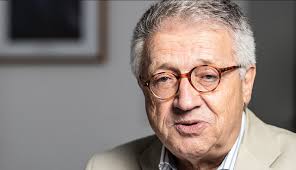Wolfgang Petritsch, President of the Austrian Institute for International Affairs, has called for the international community to push the Taliban into opening a dialogue with opposition groups. Petritsch, who is hosting the Vienna Process on Afghanistan, stressed the importance of finding political solutions to the ongoing crisis in the country.
In an exclusive interview with an Afghan-based media outlet, Petritsch urged anti-Taliban political figures to participate in the upcoming Vienna talks. He stated that decisions concerning Afghanistan must involve Afghan stakeholders at every level. Petritsch emphasized that since 2023, discussions have been ongoing to create a roadmap, and now is the time for opposition leaders to act decisively. The goal is for them to create a unified and actionable plan.
Petritsch noted that the Vienna Process is focused on fostering initial contact with the Taliban. He said, “The aim is not to provoke more conflict but to create space for intra-Afghan dialogue.” He reiterated that the Taliban are now a political reality in Afghanistan. Rather than escalating war, the emphasis must be on finding ways to bring all sides to the negotiating table.
The Vienna Process, according to Petritsch, has seen participation from key Afghan opposition figures, and he believes that international actors like the United States, the European Union, and regional powers should coordinate pressure on the Taliban. This would compel the group to engage with non-Taliban political and military forces.
Petritsch also suggested that there are moderate voices within the Taliban who may be open to the idea of elections and inclusive governance. He referred to the Doha Agreement, where the Taliban had committed to dialogue with all Afghan factions. Petritsch stressed that these commitments should now be fulfilled.
The primary goal of the Vienna Process, Petritsch explained, is to transform intra-Afghan dialogue into a practical and constructive political process. The fifth session of the Vienna Process was held in February, with participation from notable figures like Ahmad Massoud of the National Resistance Front and Yasin Zia of the Afghanistan Freedom Front.


